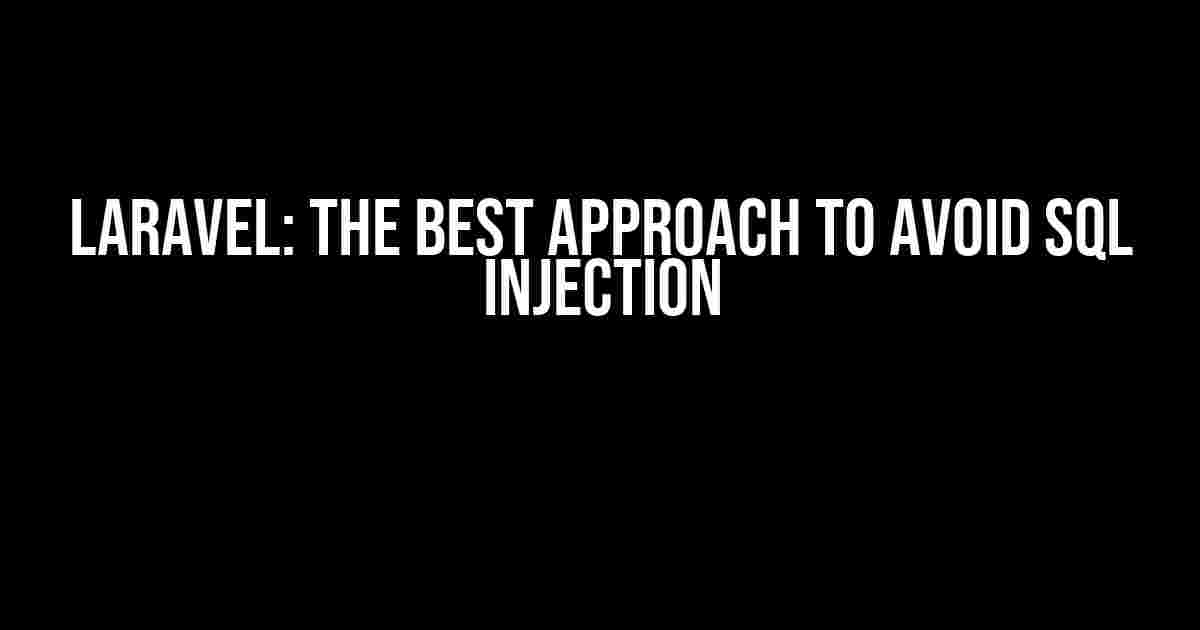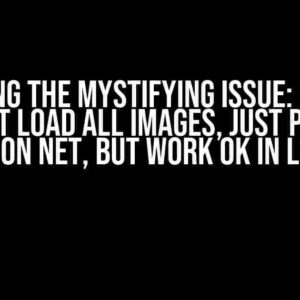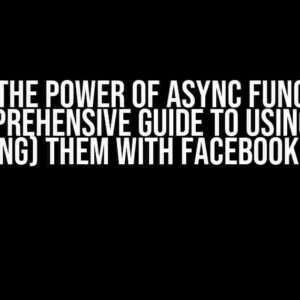SQL injection is a common web application security vulnerability that occurs when an attacker injects malicious SQL code into your application’s database. This can result in unauthorized access, data tampering, and even complete system compromise. As a Laravel developer, it’s essential to take measures to prevent SQL injection attacks and ensure the security of your application.
Understanding SQL Injection
Before we dive into the best approach to avoid SQL injection in Laravel, let’s take a quick look at how SQL injection works.
SQL injection occurs when an attacker injects malicious SQL code into your application’s database through user input. This can happen when you use user-supplied data to construct SQL queries without proper validation and sanitization.
In the above example, if an attacker sends a malicious input like ` OR 1=1 --, the resulting query would be:
SELECT * FROM users WHERE name = '' OR 1=1 --
This query would return all rows from the `users` table, giving the attacker unauthorized access to your data.
How Laravel Helps Prevent SQL Injection
Laravel provides several features to help prevent SQL injection attacks:
- Query Builder: Laravel’s Query Builder provides a simple and secure way to build SQL queries. It automatically escapes and sanitizes user input, making it difficult for attackers to inject malicious code.
- Eloquent ORM: Eloquent, Laravel’s ORM, provides a high-level interface for interacting with your database. It abstracts away the underlying SQL, making it easier to write secure code.
- Parameter Binding: Laravel’s query builder and Eloquent ORM support parameter binding, which allows you to pass user input as separate parameters instead of injecting it directly into the query.
The Best Approach to Avoid SQL Injection in Laravel
While Laravel provides built-in features to prevent SQL injection, it’s still essential to follow best practices when coding to ensure the security of your application. Here are some tips to help you avoid SQL injection in Laravel:
Use the Query Builder
The Query Builder is a powerful tool in Laravel that allows you to build complex SQL queries in a secure way. It’s recommended to use the Query Builder instead of writing raw SQL queries.
where('name', 'like', '%'.$request->input('name').'%')
->get();
?>
Use Eloquent ORM
Eloquent ORM provides a high-level interface for interacting with your database. It abstracts away the underlying SQL, making it easier to write secure code.
input('name').'%')->get();
?>
Use Parameter Binding
Parameter binding is a security feature in Laravel that allows you to pass user input as separate parameters instead of injecting it directly into the query.
input('name')]);
?>
Avoid Raw SQL Queries
Avoid writing raw SQL queries in your Laravel application, as they can be vulnerable to SQL injection attacks.
Instead of using raw SQL queries, use the Query Builder or Eloquent ORM to build your queries.
Validate and Sanitize User Input
Validate and sanitize user input to ensure that it conforms to expected formats and doesn’t contain malicious code.
all(), [
'name' => 'required|string|max:255',
]);
if ($validator->fails()) {
// Handle invalid input
}
?>
Keep Your Laravel and PHP Version Up-to-Date
Keep your Laravel and PHP version up-to-date to ensure you have the latest security patches and features.
Laravel and PHP release regular security updates, so it’s essential to stay current to prevent potential vulnerabilities.
Best Practices for Avoiding SQL Injection
In addition to using Laravel’s built-in features and following best practices, here are some general tips for avoiding SQL injection:
- Use prepared statements: Prepared statements separate the SQL code from the data, making it difficult for attackers to inject malicious code.
- Use whitelisting: Only allow specific, whitelisted input to be passed to your SQL queries.
- Use input validation: Validate and sanitize user input to ensure it conforms to expected formats and doesn’t contain malicious code.
- Avoid using dynamic SQL: Dynamic SQL can be vulnerable to SQL injection attacks. Instead, use prepared statements or parameterized queries.
- Limit database privileges: Limit database privileges to the minimal required for your application to reduce the attack surface.
Conclusion
SQL injection is a serious security vulnerability that can have devastating consequences for your application and users. By following best practices, using Laravel’s built-in features, and avoiding common mistakes, you can ensure the security of your application and prevent SQL injection attacks.
Remember, security is an ongoing process, and it’s essential to stay vigilant and up-to-date with the latest security patches and best practices.
| Best Practice | Description |
|---|---|
| Use the Query Builder | Use Laravel’s Query Builder to build complex SQL queries in a secure way. |
| Use Eloquent ORM | Use Eloquent ORM to interact with your database in a high-level, secure way. |
| Use Parameter Binding | Use parameter binding to pass user input as separate parameters instead of injecting it directly into the query. |
| Avoid Raw SQL Queries | Avoid using raw SQL queries in your Laravel application, as they can be vulnerable to SQL injection attacks. |
| Validate and Sanitize User Input | Validate and sanitize user input to ensure it conforms to expected formats and doesn’t contain malicious code. |
| Keep Your Laravel and PHP Version Up-to-Date | Keep your Laravel and PHP version up-to-date to ensure you have the latest security patches and features. |
By following these best practices and using Laravel’s built-in features, you can ensure the security of your application and prevent SQL injection attacks.
Here are 5 Questions and Answers about “Laravel – The best approach to avoid SQL Injection”:
Frequently Asked Question
Laravel, a popular PHP framework, provides several ways to protect your application from SQL injection attacks. Here are some frequently asked questions and answers to help you secure your Laravel application.
What is SQL Injection and how does it affect my Laravel application?
SQL Injection is a type of web application security vulnerability that allows an attacker to inject malicious SQL code into your application’s database, potentially leading to data tampering, unauthorized access, or even complete system compromise. In Laravel, SQL Injection can occur when user input is not properly sanitized and validated, allowing an attacker to inject malicious SQL code through forms, URLs, or other user-input mechanisms.
How can I use prepared statements to prevent SQL Injection in Laravel?
Laravel provides a built-in support for prepared statements through its Query Builder and Eloquent ORM. By using named bindings or anonymous bindings, you can separate the SQL code from the user-input data, making it difficult for attackers to inject malicious SQL code. For example, you can use the `DB::statement` method with named bindings like this: `DB::statement(‘SELECT * FROM users WHERE name = :name’, [‘name’ => $input]);`.
What is the role of Validation in preventing SQL Injection in Laravel?
Validation plays a crucial role in preventing SQL Injection in Laravel. By validating user input data, you can ensure that it conforms to expected formats and rules, making it difficult for attackers to inject malicious SQL code. Laravel provides a robust validation system that allows you to define rules for each input field, such as email, password, or credit card number. You can use the `Validator` facade to validate user input data and throw exceptions or display error messages if the input is invalid.
How can I use Laravel’s CSRF protection to prevent SQL Injection?
While CSRF (Cross-Site Request Forgery) protection is primarily designed to prevent unauthorized requests from external sites, it can also help prevent SQL Injection attacks. Laravel’s CSRF protection generates a token for each request, which is verified on the server-side. This token can help prevent attackers from injecting malicious SQL code through forms or URLs. To enable CSRF protection in Laravel, you can add the `@csrf` directive to your forms or use the `csrf_token` middleware.
What are some best practices to follow to avoid SQL Injection in Laravel?
To avoid SQL Injection in Laravel, it’s essential to follow best practices such as using prepared statements, validating user input data, and sanitizing output data. Additionally, you should limit database privileges, use secure password hashing, and keep your Laravel application and dependencies up-to-date. Regularly review your code for potential vulnerabilities and use tools like Laravel’s built-in debugger and error logging to identify and fix issues.



